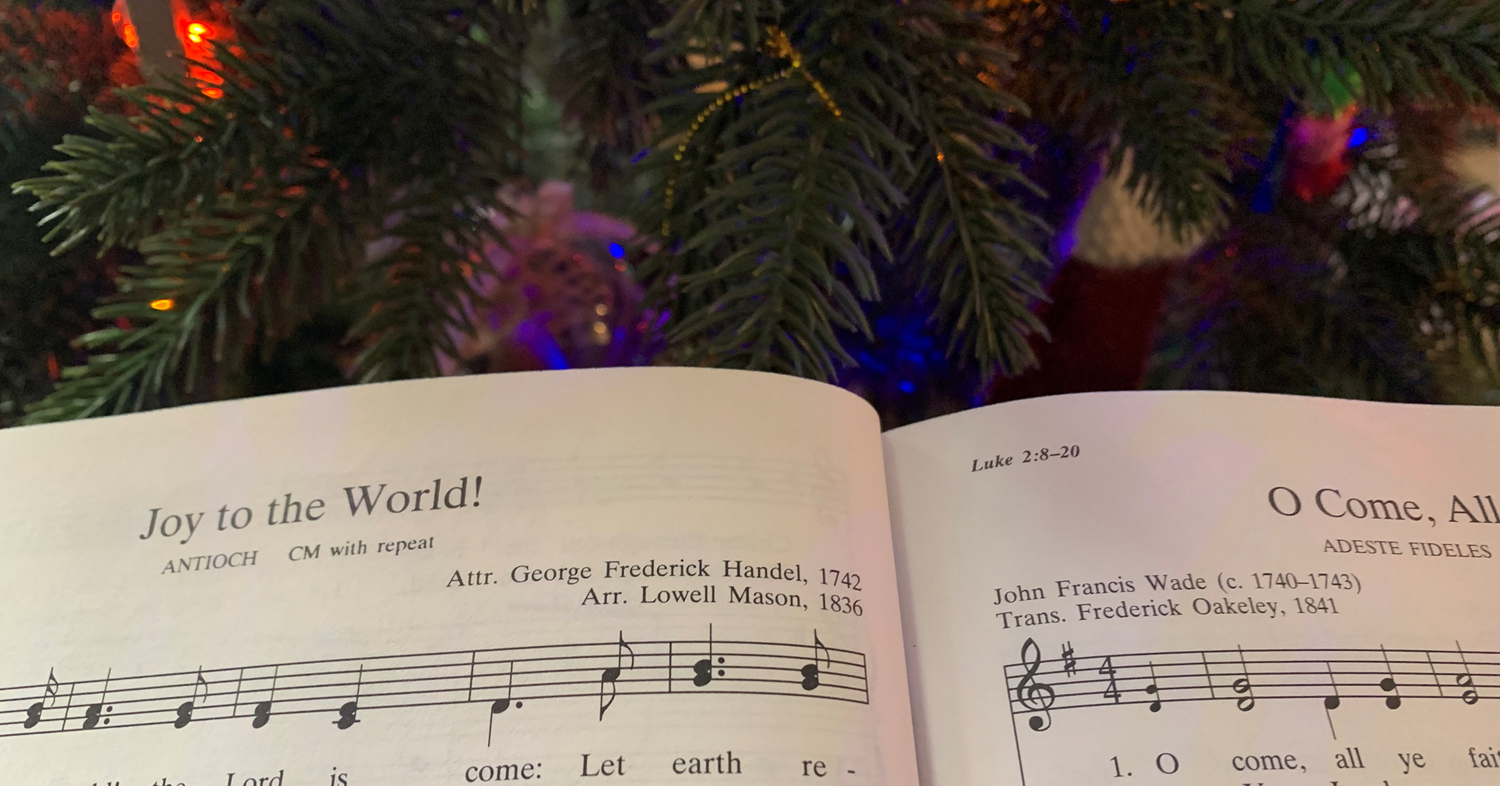And in the same region there were shepherds out in the field, keeping watch over their flock by night. Not everyone in our families and neighborhoods, let alone our whole world, recognizes the words from Luke 2. But for many of us, the scene is set and we need hear nothing more to remember the story of the angel’s announcement of a babe wrapped in swaddling clothes and lying in a manger. And, by the way, one contemporary version’s “wrapped snugly in cloth and lying in a feeding trough” just won’t do (CSB).
Repetition plants words and phrases good or bad in our hearts and minds Those good words and phrases have the ability carry through hard or joyful times, while those other words and phrases perhaps trap us in despair and anger. As with so many things, it is not a matter of “if” so much as it is a matter of “what.” Not if we will remember certain word or phrases, but what words and phrases we will remember.
We do well to remember the words of Scripture, for they will encourage us when we must walk through the valley of the shadow of death and will give voice to our joy when we remember God’s love and mercy which is new every morning – great is his faithfulness!
Certainly, no words are more powerful than the words of Scripture, but Scripture itself also points to the importance of the church’s music to our spiritual wellbeing. The Apostle Paul encourages his friends in Colossae to sing “psalms and hymns and spiritual songs.” According to the revelation given John, eternity will be filled with hymns and songs of praise to him “who sits on the throne and to the Lamb” (Revelation 5:13).
As Christmas approaches, then, the words of hymns and carols best express for many of us the meaning of our preparation and our celebration. We know that the hopes and fears of all the years met in that little town of Bethlehem. We pray, “Come, thou long-expected Jesus,” and then that every heart would prepare him room. We give thanks for the one who was born to raise the sons of earth, born to give them second birth. Indeed, good Christian friends, rejoice, and then go tell it on the mountain.
Such is the power of repeated words planted in our memories. In all honesty, though, I must also tell you that I know that the other reindeer never let poor Rudolph join in any reindeer games, and that when Santa Claus comes to town he is going to find out if I’ve been naughty or nice. As I said, words remembered for good or for bad.
Back to the topic at hand. Of course, the hymns and carols that speak to me as an English-speaking Christian of a particular age and tradition do not speak to all followers of Jesus. But through their repetition and by their faithfulness to the story the Bible tells, they have spoken powerfully to me and so many others.
Paul does not prescribe a list of psalms and hymns and spiritual songs to be sung in the church, but he does exhort us to sing (and, yes, we must discern the greater value of “Silent Night” and the lesser value of “Frosty the Snowman.”) Might Paul have known the power of song and hymn to plant words of hope and joy and encouragement in our hearts and minds? Old songs are not necessarily better than new songs or new better than old. Drums, guitar, or organ is not the issue.
Words and phrases, especially good words and phrases, repeated and remembered for our growth in faith and love, that’s the point. Psalm and hymns and spiritual songs sung for our wellbeing.
Are we losing this rich resource? A recent Christianity Today article raises such a concern, if not about the quality of the content of our songs (another topic for another day), then about the frequency of our singing them.
According to those who study such things, the shelf life of a contemporary worship song has decreased from 10 to 12 years in the 1990s to 3 to 4 years today. That is, we sing a song a few times over a period of a few months until it is replaced by something newer. That is not enough repetition for the words to be planted in heart and mind and recalled when we need to give voice to fear or joy. The findings of the study seem true to me. Again, it is not that the old hymns are necessarily better than the new, it is just that we don’t have time for the new words to take root. Congregations want to be entertained with the newest and the latest, and worship leaders oblige.
I have great respect and, I hope, understanding for those who craft worship services and select songs and hymns to be sung by the congregation. My intent is to give thanks for the words that speak to heart and mind as our weary world rejoices.
Yes, joy to the world!

